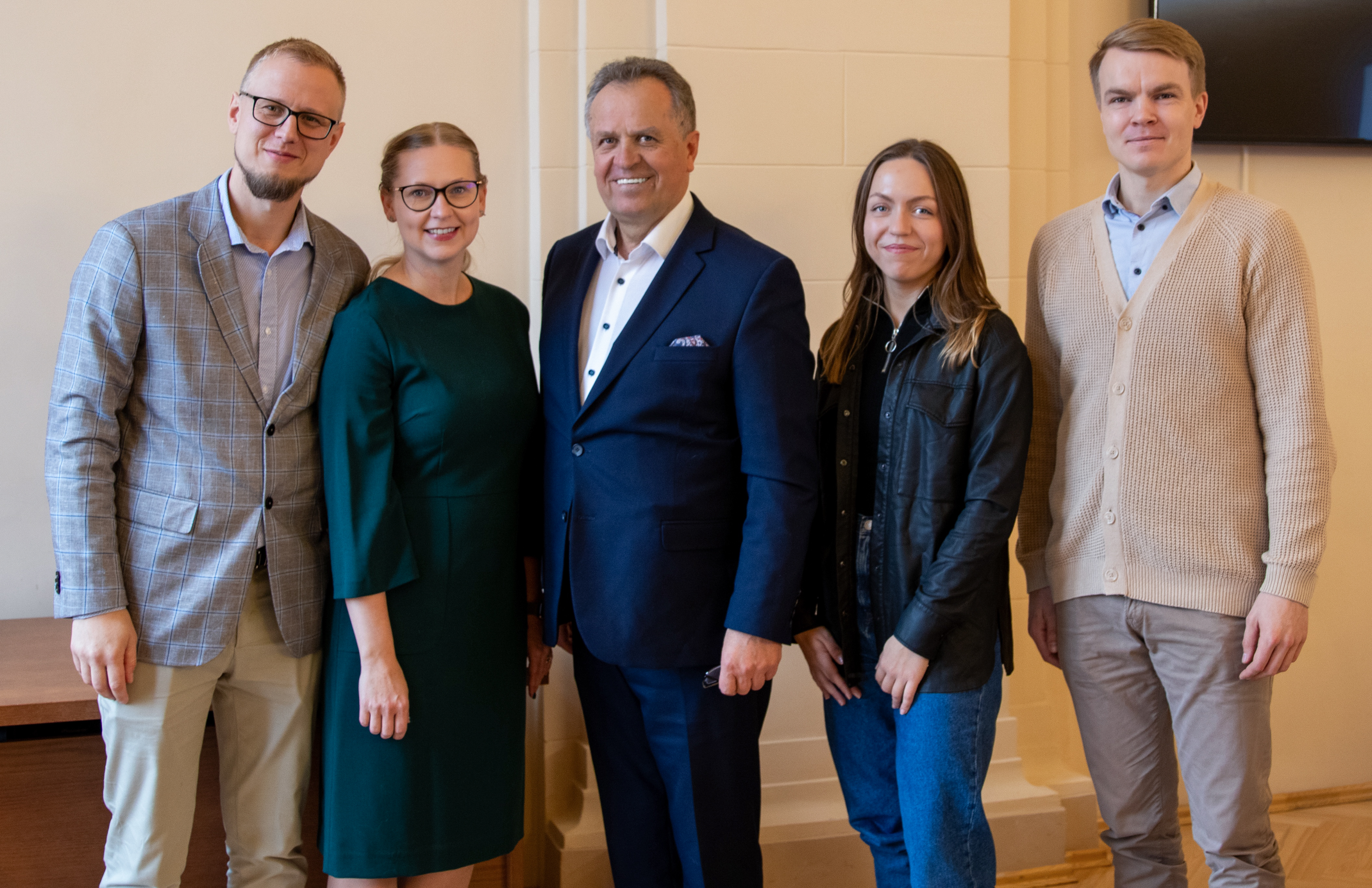Virtual Reality in Emergency Medicine Studies: Researchers from the Faculty of Medicine at Vilnius University Launch an Innovative Project
 Vilnius University, in cooperation with partners from Poland, France and Lithuania, is implementing the unique Erasmus+ project MedEd PolyTrauma VR: Increasing quality of emergency medicine education through polytrauma virtual reality training. The project aims to improve the quality of clinical skills of medical students by simulating polytrauma situations and to provide teachers with a complementary tool in physician training.
Vilnius University, in cooperation with partners from Poland, France and Lithuania, is implementing the unique Erasmus+ project MedEd PolyTrauma VR: Increasing quality of emergency medicine education through polytrauma virtual reality training. The project aims to improve the quality of clinical skills of medical students by simulating polytrauma situations and to provide teachers with a complementary tool in physician training.
The team of researchers from the Faculty of Medicine at Vilnius University (VU MF), led by Prof. Dr. Pranas Šerpytis, brings to the project not only thorough theoretical knowledge, but also practical experience. This will ensure that the virtual reality (VR) training tools that are developed, will not only be innovative, but also be directly applicable in real-life medical practice. Top level emergency medicine physicians, Dr Renata Juknevičienė, Dr Paulius Uksas and Dr Aleksandras Briedis, together with resident physician, Beatriče Raščiūtė, will not only contribute to the development of the training content, but will also be actively involved in the project testing and adaptation, to ensure that the developed tools will be adapted to real-life medical challenges.
The first meeting of the project partners took place during October. The consortium members presented future activities that will allow them to develop and deploy VR training tools for managing complex clinical situations involving polytrauma patients. According to project researchers, this innovative solution will not only improve students’ clinical skills and decision-making abilities but will also make it possible to make mistakes safely while learning from their mistakes without putting patients at risk. VR will become an essential tool helping students to deal with critical situations in an interactive and realistic way, and give them the opportunity to learn how to respond to challenges that are often difficult to replicate using more traditional teaching methods.
“In this project, we will try to train students according to the EU’s good practice training standards. The programme will be approved by the University of Franche-Comté in France and the University of Warmia and Mazury in Olsztyn, Poland. The project should improve the quality of clinical skills developed by medical students by simulating polytrauma situations and it will generate an international standard for teachers, thereby contributing to further academic and scientific cooperation,” Prof. Šerpytis, Head of the VU research team, commented.
The project is expected to contribute to international competitiveness in healthcare training curricula, promote the use of VR technologies in medical education and be an important step in transforming the medical education approaches of the future.
According to researchers at the VU MF, the success of the project depends on a close partnership between specialists from different countries. This collaboration allows the exchange of best practices, the development of internationally recognised teaching methods and the ability to ensure that the tools developed can be applied in a variety of cultural and educational settings. This approach will also ensure the effectiveness and global applicability of these tools.
Project partners:
• Vilnius University (coordinating institution)
• University of Warmia and Mazury in Olsztyn, Poland (Polish: Uniwersytet Warmińsko-Mazurski w Olsztynie)
• Franche-ComtéUniversity of Besançon, France (Université de Franche-Comté)
• UAB Gluk Media, developers of innovative virtual reality technologies in Lithuania
Project duration: 2024–2026.
The project is funded by the European Union (Erasmus+ Programme, action type KA220-HED - Cooperation Partnerships in Higher Education, Project No 2024-1-LT01-KA220-HED-000248267).
